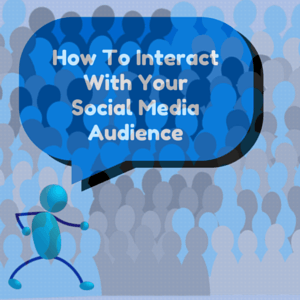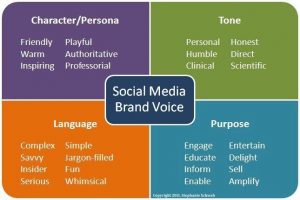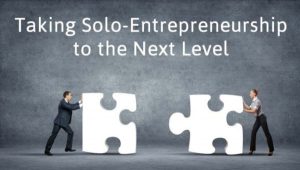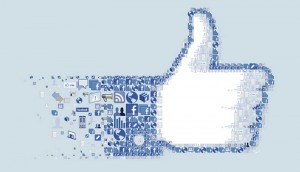— August 26, 2019
The millennial workforce is on the verge of burnout. For starters, check out the breaking news from Deloitte’s 2019 annual millennial survey, which should be a wake-up call for the HR industry:
“Despite current global economic growth, expansion and opportunity, millennials and Generation Z are expressing uneasiness and pessimism—about their careers, their lives and the world around them.”
It’s not the first time we’ve heard about anxiety impacting the millennial workforce. The American Psychological Association’s “Stress in America” survey reported that 40% of millennials felt anxious or nervous at least once in the past month. Anxiety in the workplace adds another dimension to the already complex equation of employee engagement. With millennials making up 50% of the U.S. workforce within the next two years, no one can ignore the negative consequences of anxiety in the workplace, including catastrophic productivity shortfalls.
This is the first post of a two-part series covering anxiety in the workplace. Here’s a few tips on how you can prevent your millennial workforce from burning out.
Why is the millennial workforce burning out?
Anxiety in the workplace is becoming such a large issue that it’s now attracting media attention. The Wall Street Journal recently headlined their article: “The Most Anxious Generation Goes to Work.” Millennial burnout is a direct consequence of growing up in an era of relentless disruption. It’s a direct byproduct of the “hyper” culture: living your best life, all exacerbated by social media. BBC reports:
“Millennial burnout can be brought on by over-expectations from parents, careers, and society […] which leads to a fear of failure and, conversely, a fear of success: ‘If I achieve all that, how can I possibly keep it up? I may as well not even try’.”
The constant pressure of perfectionism that prior generations didn’t have to deal with results in an entire generation assessing everything they do on a scale of achievement. As a result, millennials live with the belief that they have to work all the time. This is exactly what drew worldwide attention to millennial burnout when BuzzFeed writer Anne Helen Petersen shared her struggles:
“Exhaustion means going to the point where you can’t go any further; burnout means reaching that point and pushing yourself to keep going, whether for days or weeks or years […] We don’t quit. We internalize that we’re not striving hard enough. And we get a second gig.”
As an HR leader, what do you need to know?
First, many millennials live in burnout as it’s a tangible reality of “adulting”. They keep going to work (as drained, ineffective, unproductive as they could be) and show up again the next day. Second, the price for burnout is way higher than the cost of attrition. According to the World Health Organization, depression and anxiety disorders are costing the global economy $ 1 trillion U.S. dollars per year in lost productivity. With this context in mind, engaging your millennial workforce becomes more than just about making employees happy or anticipating the high cost of attrition. It turns into the meaningful act of supporting individuals who come to work with an emotional reality they can barely cope with; supporting a full population of workers who gradually lose focus, loosen boundaries, and struggle to respond to stressful situations.
Make mental health a priority
Investing in your millennial workforce’s mental health pays off. According to the WHO, for every $ 1 U.S. dollar invested into the treatment and support of mental health disorders, there’s a return of $ 4 U.S. dollars in improved health and productivity. EY (formerly Ernst and Young) understood it years ago. They committed to reducing the stigma around mental health by launching their dedicated program “We Care”, and created a culture where emotional diversity is as important as gender or racial diversity.
If the issue of mental health is serious enough to be a strategic priority for your company, success depends on being fully transparent about it. Your millennial workforce needs to know that your company takes mental health seriously. They need to know that they can come forward and ask for help. And they need to know that support is available. If you’re not ready to implement mental health on-site counseling or dedicated hotlines, there are a couple of simple, actionable initiatives you can take to show your millennial workforce you care about their mental wellbeing. Here are a few examples:
- Advocate for wellness by promoting healthy eating and regular exercise
- Offer financial advisory services (millennials are the highest indebted generation, due to the cost of education: 1 in 3 millennials suffers from Acute Financial Stress)
- Provide e-learning opportunities for employees so they can become less reactive to stress
- Practice mindfulness, yoga, and meditation sessions. These type of exercises can instantly reduce stress.
Offer frequent recognition and appreciation
For the millennial workforce who is addicted to perfectionism, self-esteem is a critical value to role model across teams. When you adopt a culture of recognition, you make employees feel appreciated. This leads to higher employee engagement and therefore higher employee productivity and morale.
Don’t pass on the opportunity to make recognition an everyday event in your workplace. It’s important to make recognition an integrated part of the employee experience because recognition has the greatest impact on employee engagement. By spreading recognition and appreciation, employees will feel valued and understand how their work contributes to the company’s larger goals.
With your millennial workforce at risk of burnout, anxiety in the workplace should no longer be a taboo topic within the C-suite. Helping employees when they’re struggling makes smart business sense for any type of company; by doing so, you’re encouraging a culture that makes work more human. Curious about how we can make work more human as we face new technological advancements? Check out the Achievers report, “Artificial Intelligence in the Workplace: Making Work More Human, Not Less.”
Do you have any thoughts on this article? Share your comments below.
Business & Finance Articles on Business 2 Community
(50)







